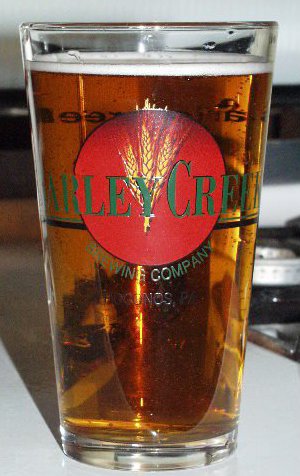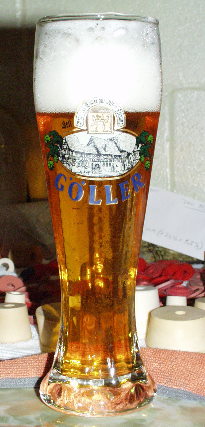- Joined
- Apr 18, 2006
- Messages
- 16,779
- Reaction score
- 5,896
I emailed both Briess & Muntons regarding late boil addition of LME & DME.
This came back from "Andy" at Muntons.
If you want a good laugh looks at this. I think the advice should taken with a grain of salt.
If you guys are successfull with this, then I guess its not a big deal.
How is the clarity of the beers you make? (Minimal Chill Haze)
Do you hop differently?
BTW - Briess never replied. I guess they don't give a rats a$$ about customer questions.
FYI - I fired back a few more questions about the need for a hot-break, impact of hop efficiency and specifically asked why most recipes say to boil malt. I'll share the answer I get back as well.

This came back from "Andy" at Muntons.
Dear Customer,
Thank you for your interest in www.yoursite.com.
Below is the answer to your question submited on 04/06/2007
QUESTION:
People in my home brewing community are saying that you no longer have to boil LME or DME for 60 minutes. Only 10-15 minutes. The claim is its not necessary since its already done in manufacturing of the malt. The motivation is so they don't caramelize the malt any more than necessary which would make their beers darker than the desired color.
Is this true? - Thanks!!
ANSWER:
To be honest with you don't need to boil Muntons LME or DME at all as we pasturise our LME and the DME, by the nature of the process, will be pasturised.
By not boiling you will maintain the delicate malt flavour in our products and obtain a far better beer.
Please feel free to get back to us for any further assistance.
Sincerely,
Ask Andy
www.muntons.com
Thank you for your interest in www.yoursite.com.
Below is the answer to your question submited on 04/06/2007
QUESTION:
People in my home brewing community are saying that you no longer have to boil LME or DME for 60 minutes. Only 10-15 minutes. The claim is its not necessary since its already done in manufacturing of the malt. The motivation is so they don't caramelize the malt any more than necessary which would make their beers darker than the desired color.
Is this true? - Thanks!!
ANSWER:
To be honest with you don't need to boil Muntons LME or DME at all as we pasturise our LME and the DME, by the nature of the process, will be pasturised.
By not boiling you will maintain the delicate malt flavour in our products and obtain a far better beer.
Please feel free to get back to us for any further assistance.
Sincerely,
Ask Andy
www.muntons.com
If you want a good laugh looks at this. I think the advice should taken with a grain of salt.
http://www.muntons.com/homebeer/instructions/htm/instructions_5.asp
Simple Instructions
1. Clean and sterilise all equipment. Remove label and stand can(s) in hot water for 5 minutes to soften contents. Pour the contents into the sterilised fermenter.
2. Add 3.5 litres (6 UK pints) boiling water. Add 16.5 litres (29 UK pints) of cold water to bring the volume up to 23 litres (40 UK pints, 6 US Gallons) and thoroughly mix to make sure all the contents are fully dissolved.
3. Add the yeast, cover the fermenter and leave to stand for 4-6 days in a warm place (between 18-20 C, 65-70 F). Fermentation will be finished when the bubbles cease to rise (if you use a hydrometer, when the gravity remains constant below 1014° .
.
4. Transfer the beer into bottles or a pressure barrel and add half a teaspoon of Light Spraymalt per pint to each bottle, or a maximum of 85 grams (3oz) per 5 UK gallon pressure barrel. Sugar may be used instead. Stand bottles or barrel in a warm place for 2 days then allow 14 days in a cool place or until the beer has cleared.
Sugar: This kit does not require the addition of any sugar other than for priming. Light Spraymalt may be used instead of sugar for priming which will ensure that your beer complies strictly with the 15th Century purity law, the Reinheitsgebot.
Simple Instructions
1. Clean and sterilise all equipment. Remove label and stand can(s) in hot water for 5 minutes to soften contents. Pour the contents into the sterilised fermenter.
2. Add 3.5 litres (6 UK pints) boiling water. Add 16.5 litres (29 UK pints) of cold water to bring the volume up to 23 litres (40 UK pints, 6 US Gallons) and thoroughly mix to make sure all the contents are fully dissolved.
3. Add the yeast, cover the fermenter and leave to stand for 4-6 days in a warm place (between 18-20 C, 65-70 F). Fermentation will be finished when the bubbles cease to rise (if you use a hydrometer, when the gravity remains constant below 1014°
4. Transfer the beer into bottles or a pressure barrel and add half a teaspoon of Light Spraymalt per pint to each bottle, or a maximum of 85 grams (3oz) per 5 UK gallon pressure barrel. Sugar may be used instead. Stand bottles or barrel in a warm place for 2 days then allow 14 days in a cool place or until the beer has cleared.
Sugar: This kit does not require the addition of any sugar other than for priming. Light Spraymalt may be used instead of sugar for priming which will ensure that your beer complies strictly with the 15th Century purity law, the Reinheitsgebot.
If you guys are successfull with this, then I guess its not a big deal.
How is the clarity of the beers you make? (Minimal Chill Haze)
Do you hop differently?
BTW - Briess never replied. I guess they don't give a rats a$$ about customer questions.
FYI - I fired back a few more questions about the need for a hot-break, impact of hop efficiency and specifically asked why most recipes say to boil malt. I'll share the answer I get back as well.







